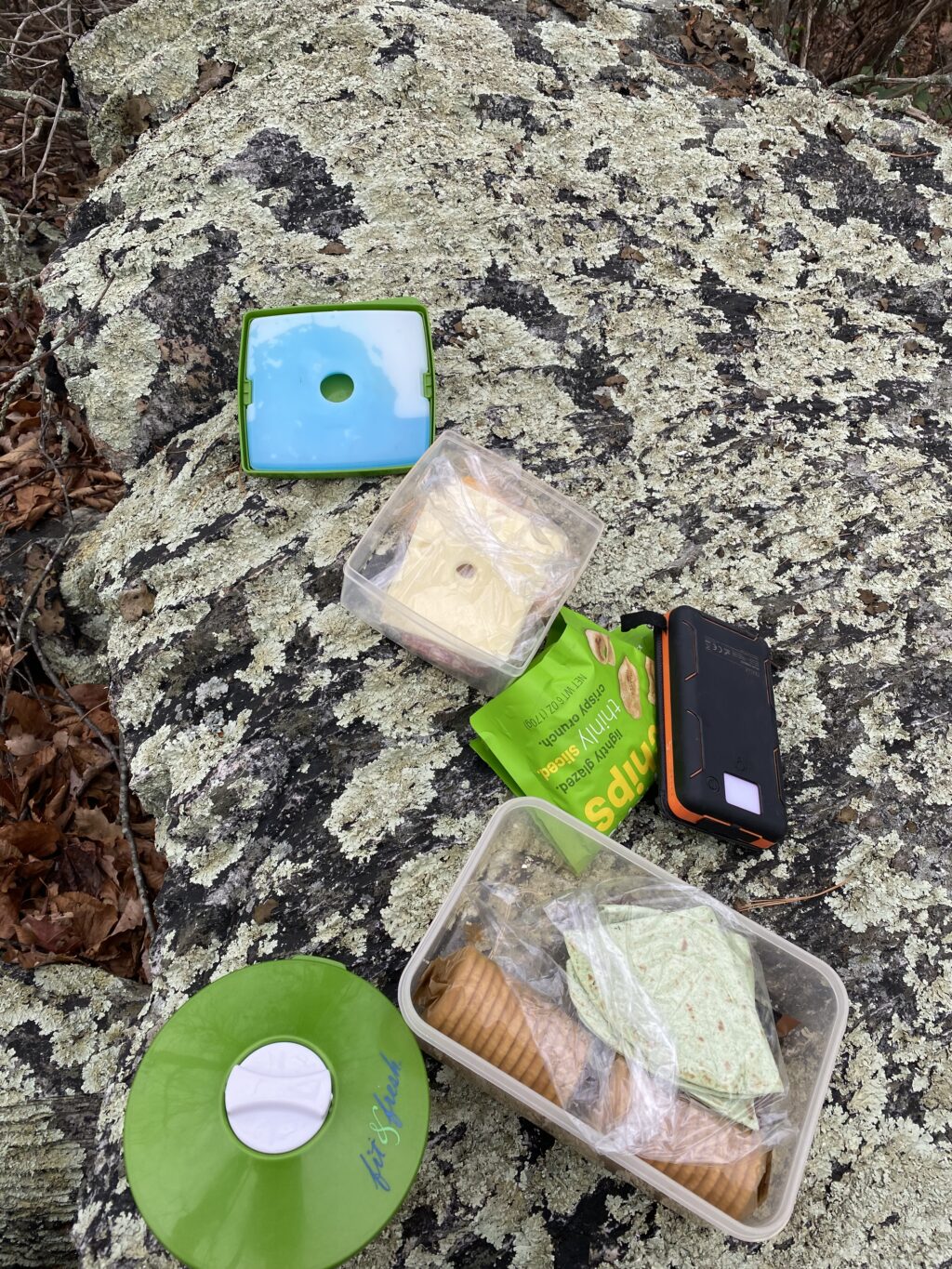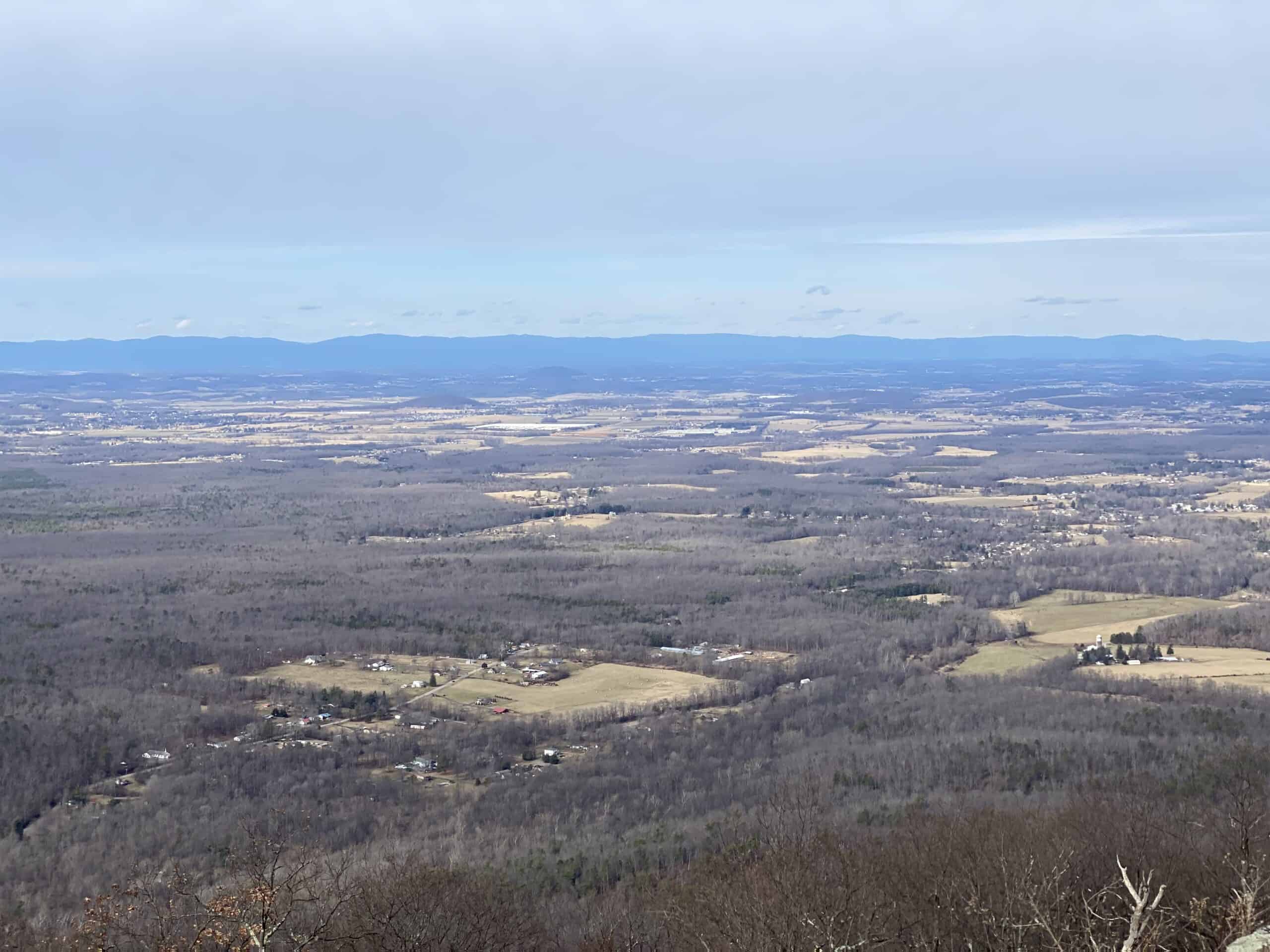Whenever I’m planning a long hike—something in the 9 to 11 mile range—I start thinking about snacks and hydration well before I hit the trail. Whether I’m heading up a tough mountain or just enjoying a peaceful day in the woods, making sure I’ve got what I need keeps the day enjoyable.
Let’s start with water.
Staying Hydrated
There was a time I didn’t bring enough water and ended the hike with a pounding headache. Lesson learned.
Now I carry a hiking backpack that holds a 3-liter hydration bladder, and it has been a game changer. I don’t have to stop and grab a bottle—I just sip as I go, which helps me stay hydrated without even thinking about it.
I’m also planning to add a water filter to my gear soon. It’s always good to have a backup if you run low and come across a stream.
In general, try to drink at least half a liter to one liter of water per hour, depending on the weather and how hard you’re pushing yourself.
And don’t forget electrolytes. I’m not a big fan of sports drinks, but I found a few electrolyte packets that I can mix into my water and they’ve helped a lot with those end-of-day headaches. Especially on hot or long hikes, replacing lost minerals makes a difference.

Fuel for the Trail
Now let’s talk food. Hiking burns energy, and having the right snacks helps keep your body moving and your mind clear. Here are some of my go-to options:
Trail Mix
Simple and reliable. I like mixes with nuts, dried fruit, and just a little chocolate. It gives me a mix of protein, carbs, and fat to keep me going.
Energy Bars
I always have a few bars in my bag. Look for ones that are high in protein and fiber and lower in sugar. My favorite is the Kind Breakfast Protein Bar in dark chocolate cocoa. It’s tasty, filling, and easy to eat while walking.
Fresh Fruit
Apples and oranges are great for longer hikes. They hold up well in a pack and give you hydration and natural sugars. I usually bring one apple with me.
Jerky
If I want something savory, jerky is a solid choice. It doesn’t go bad, and it’s packed with protein. I’ve even tried a few plant-based options lately and they’re pretty good.
Nut Butter Packets
Peanut butter or almond butter in little packets are easy to toss in your pack. You can squeeze them onto crackers, fruit, or just eat them straight. Great energy source and they don’t take up much space.
Wraps and Real Food
If I’m going to be out most of the day, I pack a wrap for lunch. I like using spinach or sun-dried tomato tortillas with salami and cheddar or Swiss. Add some carrots on the side and it hits the spot.
I always start the day with a good breakfast too. Something with eggs and sweet potatoes gives me the fuel I need to get started.
A Few More Things to Keep in Mind
We’re all different, so choose foods that work well with your body. Keep it light, non-perishable, and easy to eat on the go. And please remember to pack out everything you bring in. No one wants to see snack wrappers on the trail.
Every hike is a little different. Some days I need more food, other times I barely snack. But I’d always rather carry a little extra than find myself running out.
What are your favorite snacks to take hiking? I’m always looking for new ideas to try on my next adventure.




Leave a Reply